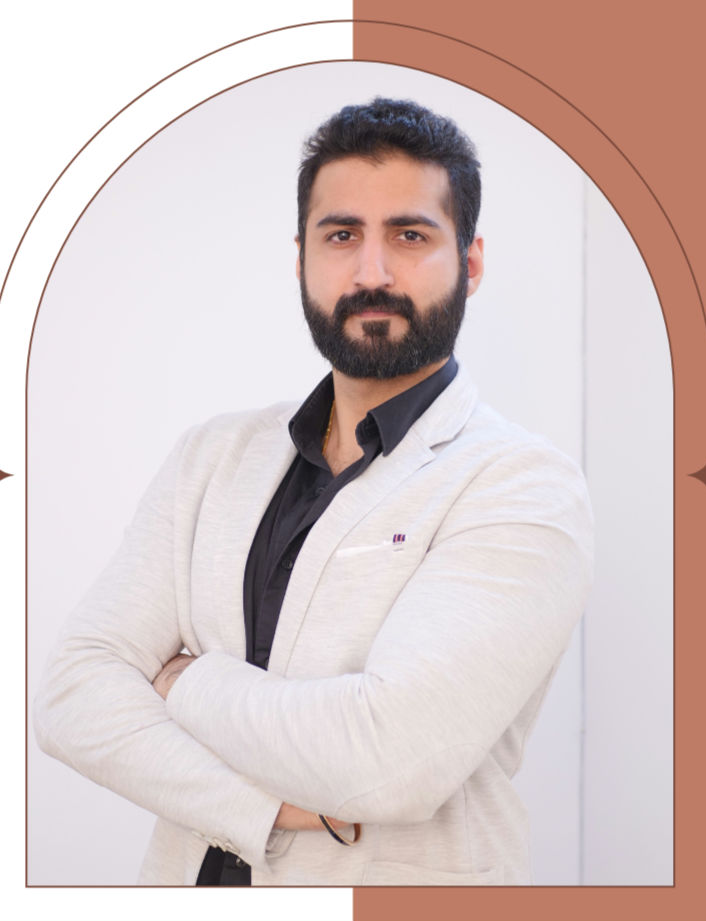top of page


Why Do I Go Soft During Oral Sex?
Losing an erection during oral sex is more common than most men admit. Yet when it happens, it can hit your confidence hard. You may start wondering if something is wrong with your body, your attraction, or your masculinity. The truth is far less dramatic. Erections are not just physical reactions. They are strongly influenced by your mind, emotions, relationship dynamics, and overall health. Let’s look at what is really going on. Performance Anxiety Is a Big Factor Oral sex

Rishabh Bhola
7 days ago


ADHD and Erectile Dysfunction: Understanding the Connection
Attention-Deficit/Hyperactivity Disorder (ADHD) has long been understood as a condition affecting attention, impulsivity, and executive functioning. Yet in clinical practice and recent research, a lesser-known aspect has emerged: a significant number of men with ADHD report sexual difficulties , especially erectile dysfunction (ED) . For many, this issue isn’t just about biology — it’s deeply connected to attention, emotional regulation, self-esteem, and relational dynamics.

Rishabh Bhola
Feb 11


Why Tadalafil and Sildenafil Do Not Always Help Porn‑Induced ED
Many men are confused when tadalafil or sildenafil works physically but fails during real sex. Erections may appear during masturbation or with porn, yet disappear with a partner. This leads to frustration and the belief that the medication is ineffective. In reality, the issue is not the drug. It is the type of erectile dysfunction being treated. What Is Porn‑Induced Erectile Dysfunction (PIED)? PIED refers to erection problems caused by long‑term exposure to high‑stimulat

Rishabh Bhola
Jan 22


I Can Get Hard When Alone but Not With My Partner
If you can get an erection easily when you are alone but struggle to stay hard with your partner, you are not broken. You are not weak. And in most cases, you are not physically ill. This is one of the most common yet misunderstood sexual concerns seen in young and middle-aged men today. Many men silently panic because their body works during masturbation but seems to fail during real sex. That confusion often leads to fear, avoidance, and worsening performance. What Does It

Rishabh Bhola
Jan 1


Side Effects of Penis Rings and Why Young Men Should Not Use Them
Penis rings or cock rings are often marketed as harmless accessories that improve erections or sexual performance. On social media and adult platforms, they are increasingly promoted to young men as a shortcut to stronger erections or longer-lasting sex. What is rarely discussed is that penis rings can carry real risks, especially for young men who do not have erectile dysfunction. For many users, the decision to try a penis ring is driven by anxiety, curiosity, or comparison

Rishabh Bhola
Dec 9, 2025


I Am Not Getting Morning Erections. Does That Mean ED?
Noticing the absence of morning erections can feel alarming. For many men, morning erections are seen as a sign that everything is working normally. When they disappear, the immediate fear is erectile dysfunction. The truth is more nuanced, and the answer is not always yes. Morning erections, medically called nocturnal penile tumescence, are influenced by a mix of neurological, hormonal, psychological, and lifestyle factors. Losing them does not automatically mean permanent o

Rishabh Bhola
Dec 8, 2025


How Long Will It Take to Recover After Quitting Porn?
Recovery after quitting porn is not a straight line. Some men bounce back in a few weeks. Others take months. A few feel better for a while and then hit a phase where progress slows. This variation exists because porn does not affect every brain the same way; it depends on age, frequency, emotional attachment to porn, masturbation habits, stress levels, and the presence of underlying anxieties. But there is one truth specialists agree on: recovery is possible . The real quest

Rishabh Bhola
Dec 4, 2025


I Can’t Maintain My Erection During Sex | A Psychosexologist Explains Why It Happens and How to Fix It
As a psychosexologist, I can tell you with confidence that this is one of the most common issues men bring to therapy. It happens to men in their 20s, 30s, 40s, 50s or whether they’re single, dating, or married. In most cases, it’s not a sign of a medical disorder. It’s a sign that something in your mind-body system is getting blocked. And the good news? Most men recover completely with the right psychological and behavioural strategies. In this article, I’ll explain exactly

Rishabh Bhola
Nov 27, 2025


How to Fix Performance Anxiety Before Sex
Performance anxiety is one of the most common yet least openly discussed sexual challenges men face. You may want sex, feel attracted, and even be physically healthy, yet your erection disappears, your mind spirals into fear, and the moment becomes stressful instead of intimate. This experience can be confusing, embarrassing, and frustrating. But here’s the truth: Performance anxiety is not a sign of failure, it’s a sign that your mind is working overtime, not your body. This

Rishabh Bhola
Nov 24, 2025


Which Doctor to Consult for Psychological Erectile Dysfunction?
Psychological erectile dysfunction refers to erection difficulties caused not by physical health problems, but by stress, anxiety, past experiences, relationship conflicts, or mental exhaustion . Many men spend months visiting urologists or taking pills before realizing that the issue is rooted in their mind, not their body. So, who should you actually consult when the problem is psychological rather than medical?Let’s break it down clearly. What's Psychological ED? Psycholo

Rishabh Bhola
Nov 12, 2025


How Antidepressants Can Lead to ED: Understanding the Connection
Antidepressants can be life changing for individuals experiencing depression, anxiety, or mood disorders. They help regulate brain chemistry and restore emotional balance, allowing people to function better in daily life. However, many people taking antidepressants notice changes in their sexual health, particularly a decrease in sexual desire or difficulty achieving or maintaining an erection. This condition is known as antidepressant-induced erectile dysfunction, and it is

Rishabh Bhola
Nov 11, 2025


Why a Man Loses Hardness During Foreplay and What It Really Means
Losing an erection during foreplay is often linked to performance anxiety, overstimulation, or lack of emotional connection, and it is not always a sign of physical dysfunction. Introduction It can be confusing and even discouraging when a man loses his erection during foreplay. Many instantly assume it’s a sign of erectile dysfunction, but in most cases, it’s a temporary physiological or psychological response — not a chronic problem. The truth is, erections are as much abou

Rishabh Bhola
Nov 7, 2025


Marijuana Erectile Dysfunction Explained
Marijuana erectile dysfunction refers to erection difficulty linked to short-term or long-term cannabis use — usually caused by changes in blood flow, dopamine sensitivity, arousal conditioning, and anxiety regulation. How Marijuana Affects the Body and Brain Marijuana contains more than 100 cannabinoids, the most active being tetrahydrocannabinol (THC) and cannabidiol (CBD) . These compounds interact with the body’s endocannabinoid system , a network of receptors that regul

Rishabh Bhola
Nov 3, 2025
bottom of page
